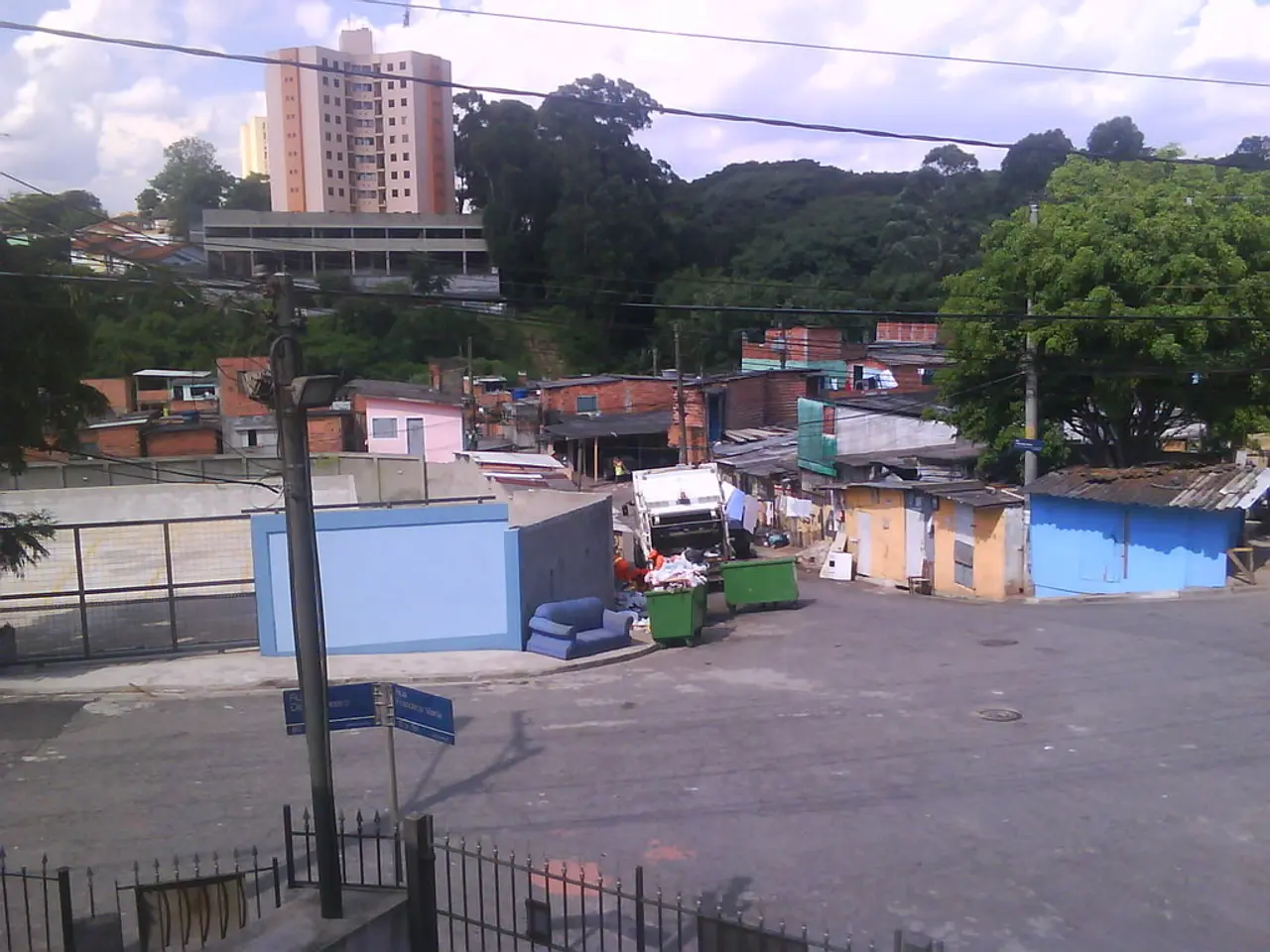Strategies for Defending Your Home from Natural Calamities
**Preparing Your Home for Natural Disasters: Expert Advice for Homeowners**
In the face of a year marked by numerous billion-dollar disasters, it's crucial for homeowners to take proactive measures to protect their properties from potential natural catastrophes. Shannon Martin, a home finance expert at Bankrate, offers valuable advice on how homeowners can prepare their homes for the most common disasters in their areas.
**Home Preparation Strategies**
1. Assess and Upgrade Roofing: - Use high-durability materials such as impact-resistant shingles for hail-prone areas or metal roofing for overall resilience. - Consider the FORTIFIED roof standard designed by the Institute for Business & Home Safety (IBHS) to enhance durability.
2. Secure and Reinforce Windows and Doors: - Install storm shutters or impact-resistant windows to protect against strong winds and debris. - Reinforce doors with hurricane clips or solid core doors.
3. Landscape and Drainage: - Ensure trees and shrubs are trimmed to prevent branches from damaging your home. - Install a French drain or a similar system to manage water flow and prevent flooding.
**Insurance Tips**
1. Understand Your Policy: - Review your policy to ensure it covers all potential natural disaster risks specific to your area. - Check for separate deductibles for specific disasters like hurricanes or hail.
2. Choose the Right Coverage Type: - Opt for Replacement Cost Value (RCV) insurance rather than Actual Cash Value (ACV) to ensure you can replace items at current market value. - Consider flood insurance if your area is prone to flooding, as it is often not covered under standard homeowners insurance policies.
3. Maximize Discounts: - Implement storm-resistant features to qualify for lower premiums. - Bundle policies with the same insurer to receive discounts.
4. Maintain a Home Inventory: - Keep a detailed list of your belongings to facilitate claims processing in case of a loss.
5. Review and Update Coverage Regularly: - Ensure your policy reflects any changes in your home's construction or the area's risk profile.
By following these strategies, homeowners can better prepare for and mitigate the impact of natural disasters. Homebuyers should also research the area they are considering for potential natural disaster risks and take out their policies to understand their coverage. If homeowners cannot afford major updates, Martin suggests getting the roof inspected and filling cracks in the foundation.
In addition, homebuyers should be aware that extreme weather events can impact their homeowner's insurance premiums. Martin advises shopping around for home insurance to try to get a better price. Homebuyers can also get quotes for homeowner's insurance on different homes before buying.
Homeowners across the U.S. are left paying for damage caused by tornadoes, wildfires, flooding, tropical cyclones, earthquakes, and severe storms. Some insurance carriers have left certain states due to a rise in natural disaster claims, making it essential for homeowners to be proactive in understanding their homeowner's insurance policy and its coverage.
Martin emphasizes the importance of reaching out to local programs for available grants and every little mitigation effort taken could mean less damage in the next storm. Investing in hurricane shutters and reinforcing roofs, especially with roof clips, can significantly reduce potential damage.
As we move forward, homebuyers and homeowners should consider the cost of homeowner's insurance as part of their overall budget when buying a home. By being informed and prepared, homeowners can protect their properties and reduce the financial impact of natural disasters.
Incorporating environmental science and personal finance, homeowners can enhance the resilience of their homes against natural disasters. For instance, investing in impact-resistant shingles, or metal roofing, can fortify their roofs while securing lower insurance premiums. Moreover, understanding the subtleties of different insurance coverage types, such as Replacement Cost Value (RCV) insurance, can ensure a swift recovery and minimize losses after a disaster.




